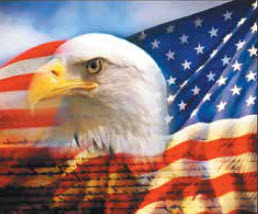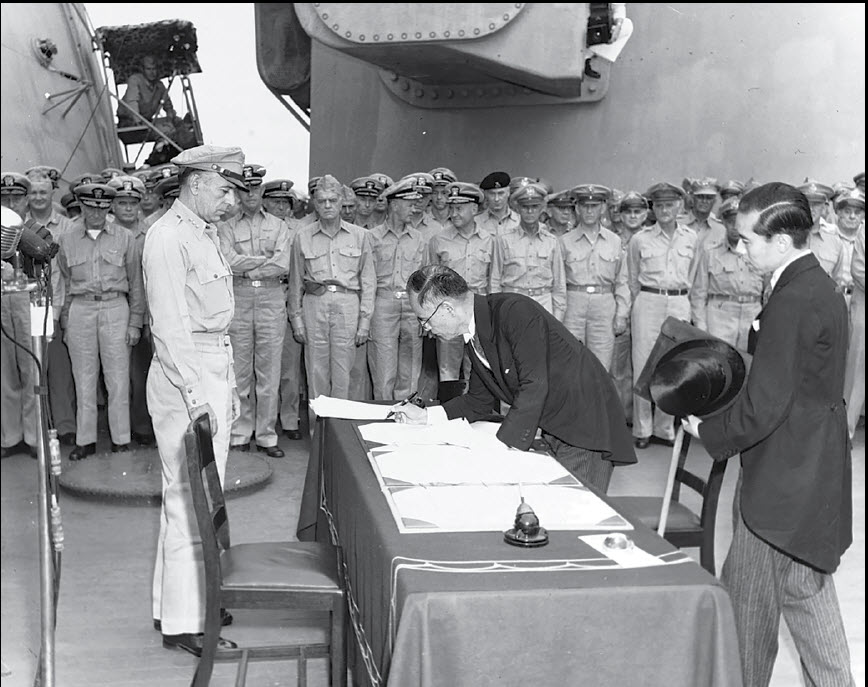V-J Day, 75 Years Later
 By: Ali Elizabeth Turner
By: Ali Elizabeth Turner
Wednesday, September 2, 2020 was the 75th anniversary of what was referred to in the West as V-J Day, or Victory over Japan Day. My dad served in the Pacific as part of the US Naval Air Corps, and calendars always clearly marked this day when I was a kid. For many years in our culture, Pearl Harbor Day, D-Day, V-E Day (Victory over Europe Day) and V-J Day were dates that one knew like the 4th of July. The actual day of the end of the war was August 15, but the formal ceremony took place on September 2.
The surrender papers were signed aboard the USS Missouri, which at the end of WWII was anchored in Tokyo Harbor. The ship, which was referred to with great affection as the “Mighty MO,” then went into dry dock for several years at the US Naval Shipyard in Bremerton, WA. The actual location of the table where the surrender papers were signed is marked on the deck, and I have stood on the spot. In 1999 the Mighty Mo was moved back to Pearl Harbor, where our involvement started and ended, and the battleship can still be toured. It is an awe-inspiring ship, to be sure, but what truly matters is what happened there.

Our country had to take drastic measures to stop the war with Japan in the form of dropping the all-time deterrents on the cities of Nagasaki and Hiroshima. Thankfully, those measures have never been deployed again, and as horrific as was their use, the number of lives lost pales in comparison to the number of casualties on both sides that would have occurred if conventional warfare had worn on. Emperor Hirohito said, in part, “Should we continue to fight, it would not only result in the ultimate collapse and obliteration of the Japanese nation, but would lead also to the total extinction of human civilisation.”
It is well documented that Hirohito thought he was a god, and as such gave an eight-hour interview in March of 1946, just a few months after the end of the war, where he lay on a white bed in white pajamas propped up by white pillows and tried to advance the narrative that he had been forced by his advisors into the war in the first place. He stated, “I was a virtual prisoner and was powerless.” This is odd coming from a man who was the Commander of the Imperial Japanese Army, which among other things committed genocide against 20 to 30 million Chinese through the use of gas, raped Chinese women by the millions, had beheading contests, and practiced vivisection.
While trivia about the battleship and the man in the white PJs may be interesting to some, what should be riveting to all is what guys like my dad helped to stop — yet another quest for world (or shared world) domination by yet another man who thought he was god and would stop at nothing (except what he called “a new and most cruel bomb”) before he capitulated. What is mind-boggling to me, and what makes our nation even more amazing, is that America and Japan are now allies, and strong ones. Think about that the next time you hop in your Honda, and if you have what is now the unlikely chance to thank someone “who was at Pearl,” please do so with heartfelt honor.
By: Ali Elizabeth Turner